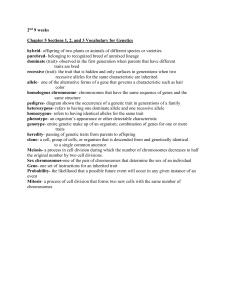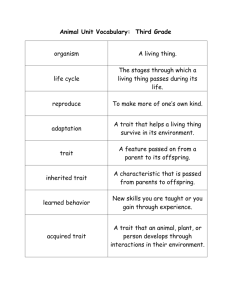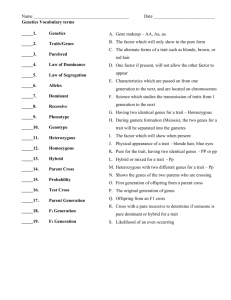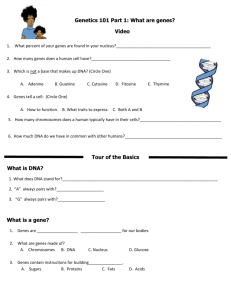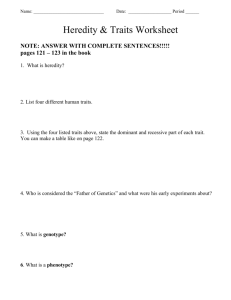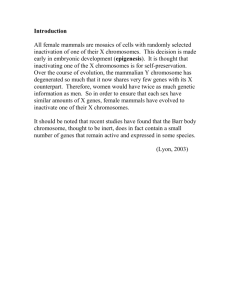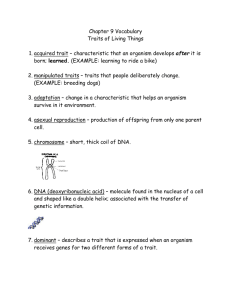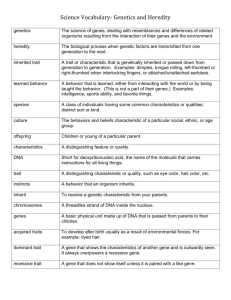Completing the Sentences: Complete the sentences with the
advertisement
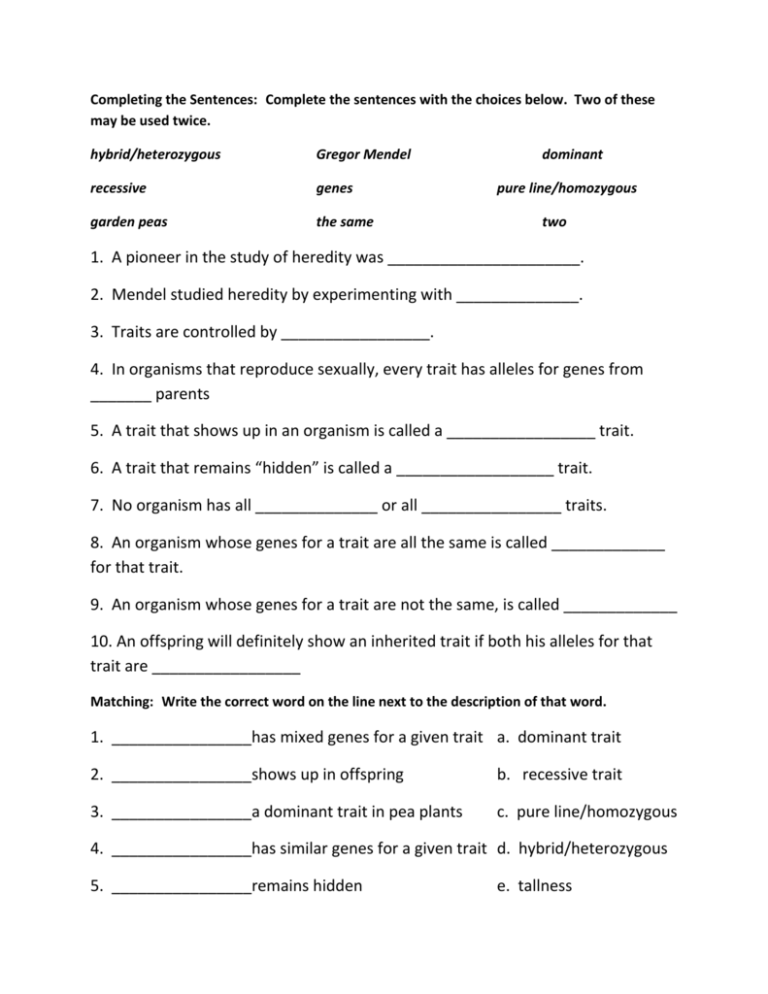
Completing the Sentences: Complete the sentences with the choices below. Two of these may be used twice. hybrid/heterozygous Gregor Mendel recessive genes garden peas the same dominant pure line/homozygous two 1. A pioneer in the study of heredity was ______________________. 2. Mendel studied heredity by experimenting with ______________. 3. Traits are controlled by _________________. 4. In organisms that reproduce sexually, every trait has alleles for genes from _______ parents 5. A trait that shows up in an organism is called a _________________ trait. 6. A trait that remains “hidden” is called a __________________ trait. 7. No organism has all ______________ or all ________________ traits. 8. An organism whose genes for a trait are all the same is called _____________ for that trait. 9. An organism whose genes for a trait are not the same, is called _____________ 10. An offspring will definitely show an inherited trait if both his alleles for that trait are _________________ Matching: Write the correct word on the line next to the description of that word. 1. ________________has mixed genes for a given trait a. dominant trait 2. ________________shows up in offspring b. recessive trait 3. ________________a dominant trait in pea plants c. pure line/homozygous 4. ________________has similar genes for a given trait d. hybrid/heterozygous 5. ________________remains hidden e. tallness Name: ______________________________________Date:________Period:____ Completing the Sentences: Use the choices below to complete the sentences. Two of these may be used twice. genes 46 specific pairs genetics inherited 23 traits chromosomes 1. The characteristics an individual has are called _____________________ 2. Traits are passed down from parents to offspring. Another way of saying this is “traits are ____________________.” 3. The study of heredity is called ______________. 4. Every plant and animal cell has tiny rod-shaped bodies called ______________. 5. A chromosome is made up of a chain of ______________________. 6. Genes determine the ________________of an individual. 7. Every organism has a ________________number of chromosomes. 8. In body cells (somatic cells), chromosomes are found in ____________. 9. Each of your body cells has ___________pairs of chromosomes. This is a total of _________single chromosomes. 10. A human sperm or egg has ___________single chromosomes. Matching: Write the word that best fits the description on the line provided. 1. ______________compound that makes up genes a. genes 2. ______________made up of many genes b. chromosomes 3. ______________have unpaired chromosomes c. DNA 4. ______________pass on traits d. body cells 5. ______________have paired chromosomes e. gametes
